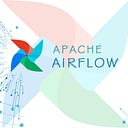AI driven Approach by Unilever

Unilever was formed in 1930 by the merger of Dutch margarine producer, Margarine Unie and British soap maker, Lever Brothers. Today, the consumer goods giant sells food, home care, refreshments, and personal care products in over 190 countries. Unilever has headquarters in London, United Kingdom and Rotterdam, the Netherlands, and subsidiaries in over 90 countries. The company employs more than 170,000 people. In 2012, Unilever reported more than €51 billion in revenue.
Unilever, the multibillion-dollar multinational consumer goods company is looking to create a culture and organization which is data-intelligent and can predict the future .
How Unilever Uses AI Technology?
The company has been using AI/ML for years to process structured data within a database but unfortunately, it’s not the same with unstructured data. Notably, unstructured data is qualitative which extracts insights from content data such as text, audio, social media, and mobile activity. However, the AI venture of Unilever now analyses content data from different posts delivered or reacted by people.
Unilever has been able to accelerate the search process for market influencers via AI-centred influencer marketing platform known as Popular Chips. This technology not only aids the company to identify certain influencers with fake followers but also pairs up Unilever with legitimate ones. The detection and pairing are based on demographics including country, age, and gender.
Recruitments :
The technology of artificial intelligence is also assisting recruiters to recruit executives including marketers.
Unilever partnered with AI firm Pymetrics in order to construct an online hub deploying technology to evaluate a candidate’s aptitude, logic, reasoning, and appetite for whatever role they have applied for.
The next round of recruiting process involves video interview in which candidate’s speech and body language are examined by AI.
According to Unilever, this embracement has chopped down nearly 70,000 hours from interviewing and analyzing procedure.
Marketing :
Unilever regularly processes massive amounts of consumer and social media data to help understand their customers and create personalized marketing campaigns.
Unilever relies heavily on for its AI for marketing efforts is the Google Cloud Vision API, a product that, according to Google’s webpage for it, provides easily modifiable pre-trained machine learning models that can analyze objects, images and text.
This essentially enables Unilever to gather massive amounts of metadata from social media posts to help power its AI for marketing campaigns.
Analyzing social media
Unilever also uses the Google Cloud Vision API, along with the Cloud Natural Language API, to help ensure that marketing efforts adhere to the cultural norms of the many “culturally diverse” areas Unilever advertises in, Owens said.
The Vision API can decode all the user-generated content across social media, Owens said, while the Natural Language API analyzes user comments.
the Natural Language API can perform analysis and annotation on text, including sentiment analysis, which can help decode emotion; entity analysis, which can help discern what the text refers to and syntactic analysis, which can help determine the makeup of a sentence.
I am excited to announce the launch of my new Udemy course, “Apache Airflow Bootcamp: Hands-On Workflow Automation.” This comprehensive course is designed to help you master the fundamentals and advanced concepts of Apache Airflow through practical, hands-on exercises.
You can enroll in the course using the following link: [Enroll in Apache Airflow Bootcamp](https://www.udemy.com/course/apache-airflow-bootcamp-hands-on-workflow-automation/?referralCode=F4A9110415714B18E7B5).
I would greatly appreciate it if you could take the time to review the course and share your feedback. Additionally, please consider sharing this course with your colleagues who may benefit from it.
